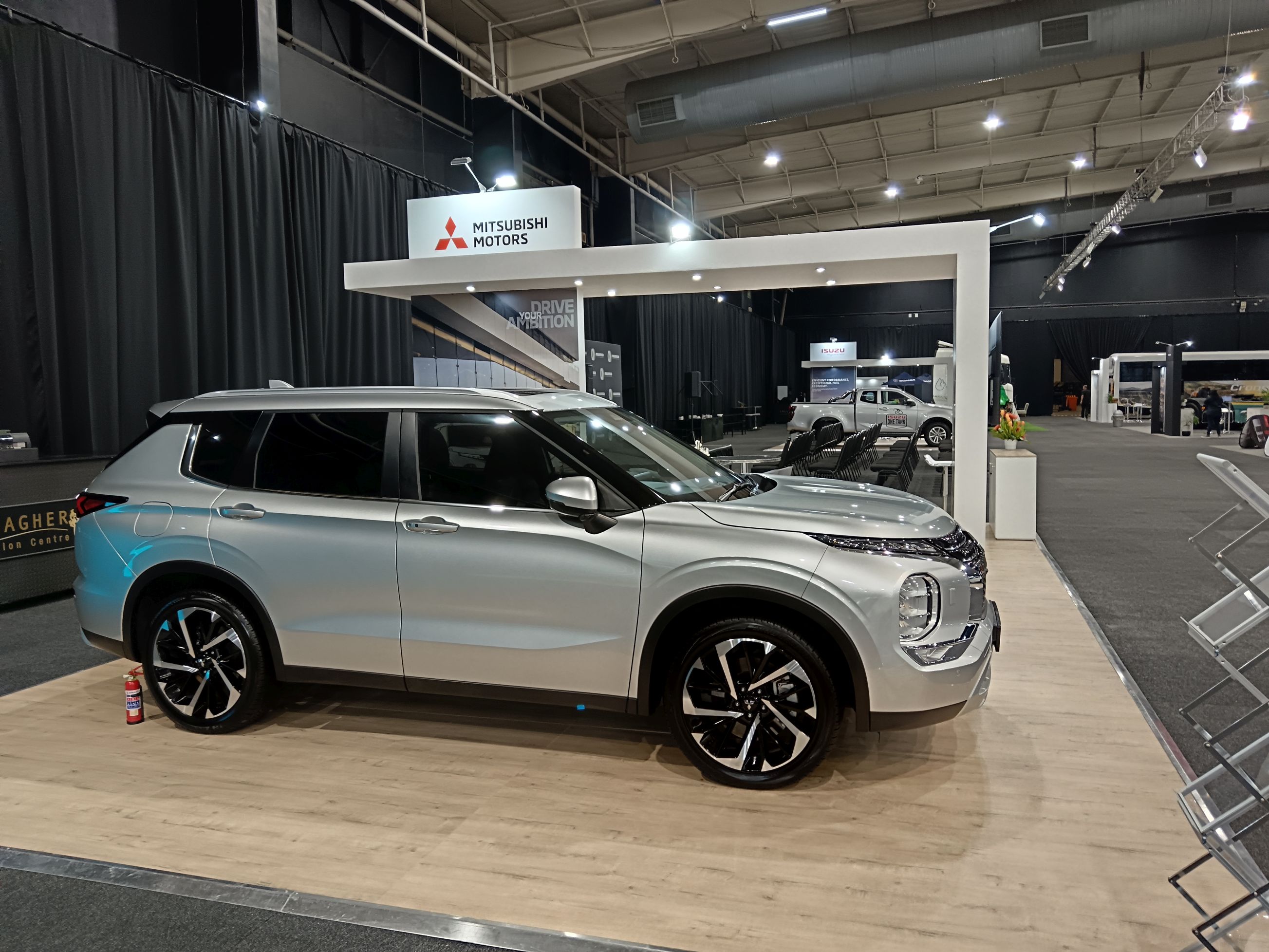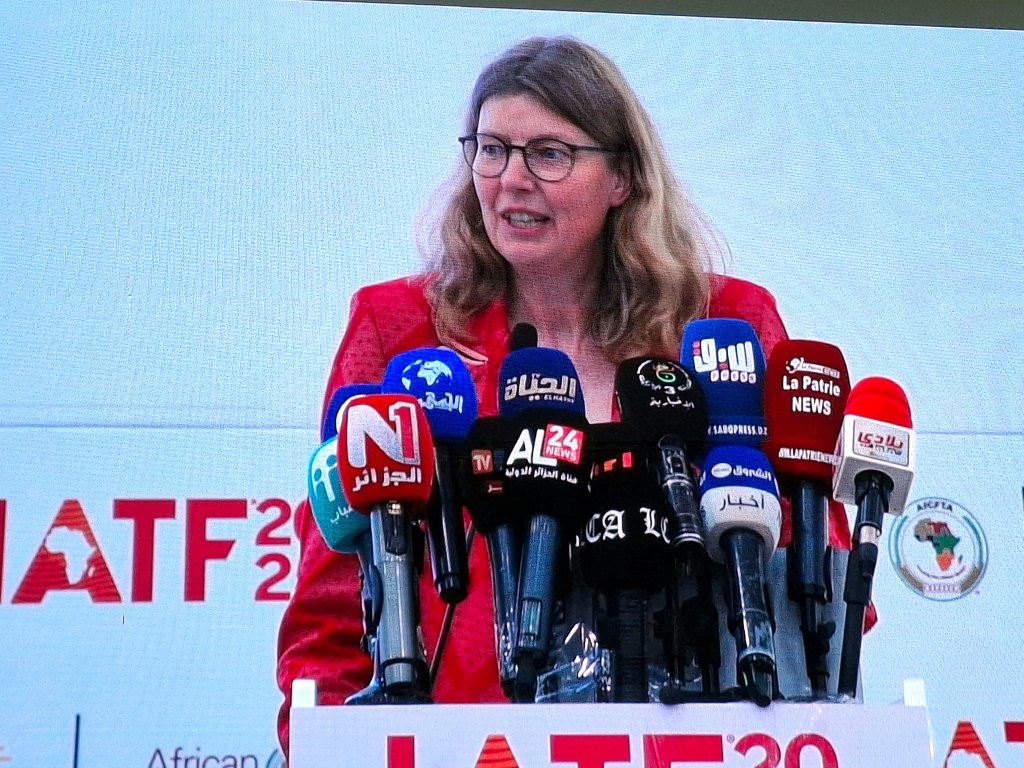
As Africa forges ahead in expanding its automotive horizons by embracing new energy technology and welcomes investments in manufacturing and allied industries, South Africa is in danger of falling behind despite the announcements made in the recent Budget Speech to facilitate automakers updating factory facilities to manufacture electric vehicles.
In the midst of a tumultuous election year in which the ruling ANC could well find itself unseated after 30 years of governance in favour of a Democratic Alliance-led coalition government, long-term important decisions regarding the future of the auto industry could find themselves even lower down on the ‘to do’ list.

Ongoing problems with the state energy suppliers, Eskom, mean the country is still subjected to regular stage electricity cuts and this is doing little to excite ordinary car buyers to consider making the move to electric vehicles (BEV). Equally, the high price of BEV with no mention by Government of any incentives or considerations to help persuade people to make the switch, is not making this a speedy process.
BEV manufacture in the country would, in the medium-term, be almost exclusively for export to feed European and American markets, with the manufacture of combustion engine and hybrid vehicles continuing for the local and many of the African markets.
However, competition is hotting up and Morocco has initiated its first-ever industrial zone focused on the production of electric vehicle batteries, with a substantial investment of USD 2,3-billion. This 283-hectare zone is poised to generate 4 000 new jobs and has already attracted attention from international investors, including the Chinese company CNGR and the Moroccan investment fund Al Mada.
It is absolutely vital South Africa has its own battery manufacturing facility that will feed local automakers as well as being price competitive on the global stage.

During COP28 in Dubai, world leaders in climate policy gathered to assess the progress of nations in reducing emissions and to bolster their commitment to climate goals. A major topic of discussion was the equitable and swift shift from fossil fuels, a subject met with both hope and caution.
The transformation of transportation systems is crucial in the move away from fossil fuels. To maintain the global temperature increase within 1,5 degrees Celsius, it’s necessary for two-thirds of passenger travel to be free of fossil fuels by 2030, to boost electric vehicle (EV) sales to 75% of the global market, and to encourage more active and public transportation usage.
African nations, despite their low greenhouse gas emissions, experience significant adverse effects from climate change. Rapid urbanisation in Africa, coupled with limited economic and institutional resources, exacerbates these challenges. African cities are grappling with issues such as declining air quality, which is responsible for more than 383 000 deaths annually on the continent, as well as flooding, extreme temperatures and water shortages.
Inaction is not an option for Africa, despite the imbalance between their contributions to and the impacts of climate change. African governments at all levels must seize the opportunity presented by the continent’s population growth and emerging markets to overhaul their transportation systems and enhance the resilience of their communities.
The urgency for Africa to act is clear. Delaying the transition to electric vehicles risks prolonging the Global South’s reliance on fossil fuels, potentially trapping these countries in a cycle of dependency.

The continent stands at a crossroads, with the chance to lead by example in the global shift towards sustainable transportation.
The World Resources Institute’s latest State of Climate Action report casts a sombre tone, yet electric vehicles (EVs) emerge as a hopeful segment. Presently, the global adoption of EVs in the passenger car market is on a trajectory that aligns with the 2030 electrification goals. This surge is primarily driven by large markets, notably China, where the combined registrations for EVs and internal combustion engine vehicles reach about 20-million annually.
Africa, while currently home to less than 1% of the global EV count, is poised for significant automotive expansion. This is attributed to its status as the second most populous and fastest-growing continent, coupled with the lowest rate of vehicle ownership. This presents a substantial opportunity for the electrification of road transport throughout Africa.
In recent years, African nations have recognized the benefits of vehicle electrification, such as enhanced urban air quality, decreased dependence on imported fuels, bolstered local car production, and progress towards climate mitigation objectives.
Countries across sub-Saharan Africa, including Rwanda, Ghana, Zambia, Kenya, Cape Verde, and Zimbabwe, have been proactive in setting targets to increase EV shares in vehicle registrations and are crafting comprehensive electric mobility policies, along with specific regulations and incentives.

This shift in policy reflects a commitment by African nations to move away from fossil fuels. The rise of start-ups aiming to electrify commonly used vehicles in African urban centres, such as minibuses and two- and three-wheeled motorcycles, is a testament to this commitment.
These types of vehicles are particularly prevalent in the informal public transport networks of East and West Africa. For instance, in Kenya, two and three-wheelers represent a significant portion of the annual vehicle registrations, exceeding 65%. This trend underscores the continent’s potential to revolutionize its transportation landscape through electrification.
Kenya’s electric vehicle (EV) landscape is seeing a surge in two-wheeler EVs, which now make up 70% of the country’s total EVs. In regions where two and three-wheelers are less common, public transportation is becoming a key driver for electrification.
Cities such as Durban and Cape Town in South Africa, Dakar in Senegal, Abidjan in Côte d’Ivoire, and Nairobi in Kenya are either operating electric buses or have plans to introduce them.

The growth of local electric mobility startups in Africa and the adoption of innovative business models are pivotal for the continent’s EV market. Research indicates that once EV sales hit 1% of total vehicle sales, a rapid increase in adoption is likely to occur.
However, many African countries have yet to reach this benchmark. For instance, Kenya’s EV registrations from May 2018 to May 2023 are estimated to be under 3 000, which is a fraction of the 400 000 vehicles registered each year.
To align with environmental and developmental objectives, African nations need to implement strategies that boost EV adoption to surpass this critical threshold. African EV firms are exploring strategies to price EVs competitively against internal combustion engine vehicles. Urban economies in Africa are fostering EV accessibility through creative approaches such as battery swapping, pay-per-use systems, and leasing options.
Nonetheless, meeting the demand for EVs in Africa remains a challenge. Despite the emergence of local electric mobility startups, the demand outpaces the supply, with companies such as BasiGo and Roam experiencing waitlists for their electric buses.
As a primary importer of EVs, Africa is poised to leverage its unique assets, including rich mineral resources essential for battery production, renewable energy prospects, and a young, expanding workforce, to strengthen its position in the global EV market.
Looking ahead, it is essential to explore various strategies to enhance the electric vehicle (EV) lifecycle, from production to end-of-life processes, through a multifaceted approach encompassing policy, technology, and economics.
Nissan Motor has announced its intention to debut its e-power hybrid technology vehicle in Tunisia as part of a broader strategy to gauge the demand for EVs within the African market.
Despite these challenges, Sherief Eldesouky, Nissan Africa’s Managing Director, remains optimistic.
“Electrification might take some time in Africa but we have a plan on how to introduce electrification, especially with our e-Power technology in some of the markets that are ready for this technology in Africa,” he says.
Nissan has already launched this technology in Morocco with the Qashqai and in Egypt with the X-Trail, with plans to expand to Tunisia.
Eldesouky added: “We’ve been leveraging our technology because Africa is not ready in terms of infrastructure availability of electricity.”

Elsewhere, Chinese automaker, Geely, plans to invest $200-million in a vehicle assembly plant in Algeria. The factory will have a production capacity of 50 000 vehicles per year. The first model to come out in 2026 will be the GX3.
https://bit.ly/3TGZqIe

 Victoria Backhaus-Jerling
Victoria Backhaus-Jerling Martina Biene
Martina Biene








































